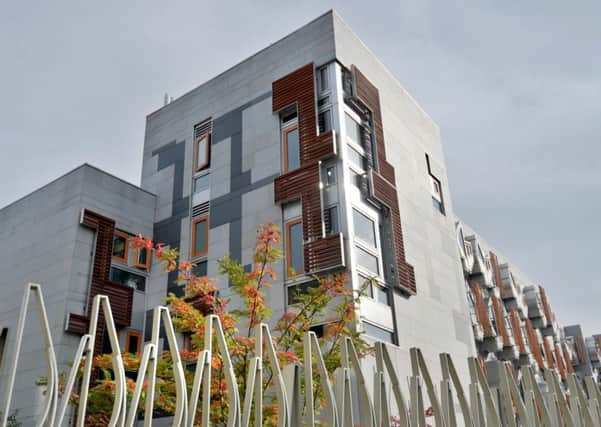Scottish independence: World affairs inquiry opens


Academics and former staff in the field gave their views as part the inquiry into the Scottish Government’s plans in those areas after independence, assuming a “yes” vote on September 18.
MSPs on the European and External Relations Committee were told to focus their goals and not spread work too thinly in multiple countries, whatever the outcome of the referendum.
Advertisement
Hide AdAdvertisement
Hide AdThe SNP administration wants to spend 0.7 per cent of national income to meet international commitments, as set out in the White Paper on independence.
Scotland will seek to be a “global leader”, the document states.
David Fish, former head of the Department for International Development Scotland, questioned whether the ambition can be met.
“Scotland would do, as it does now, a lot of very worthy things,” he told the committee.
But he added: “I don’t really see Scotland to be in a position of a global leader in the way that I interpret it, although there are lots of areas where Scotland can have a really positive influence.”
He said the trick is to pick areas where a “real difference” can be made.
“I have to say that ministers, given the inclination, will spend money all over the place,” he said.
“When the Scottish programme started off, ministers wanted to do activity in 28 countries and we helped focus them down to a very small number.”
Advertisement
Hide AdAdvertisement
Hide AdGillian Wilson, chief executive of the Network of International Development Organisations in Scotland (Nidos), said the White Paper on independence should contain more detail.
“Scotland’s impact globally is only raised in the section on international development and the impact of other policy areas is not covered, and in some cases is likely to be contradictory to the goal of equitable and sustainable global development,” the organisation said in a submission to the committee.
Colin Cameron, a former minister in the Malawi government and former honorary consul in Scotland, said independence may be positive.
Current arrangements could be a blueprint for other ex-colonial countries to follow, by working closely with a chosen partner.
“In this way there is a real hope of a prospect in raising sub-Saharan Africa out of poverty,” he told the committee.
“Scotland’s aim to this end is to be commended, and supported, and as in so many ways independence will be the way to carry this through.”
Dr Neil Thin, of the global development academy at the University of Edinburgh, “applauded” the commitment to overseas work.
But he said a newly independent government should not rush towards immediately spending 0.7 per cent of its income on aid.
Advertisement
Hide AdAdvertisement
Hide Ad“There is much to applaud in the White Paper,” he wrote in a letter to the committee.
“The aspiration and generosity is admirable, and there is a sense of the international ambition of a newly independent Scotland.
“It would be nice if the section on international development could articulate a more inspirational vision of what a particularly Scottish approach to international development - drawing on its strengths, legacies and international perspective - would be built upon.”